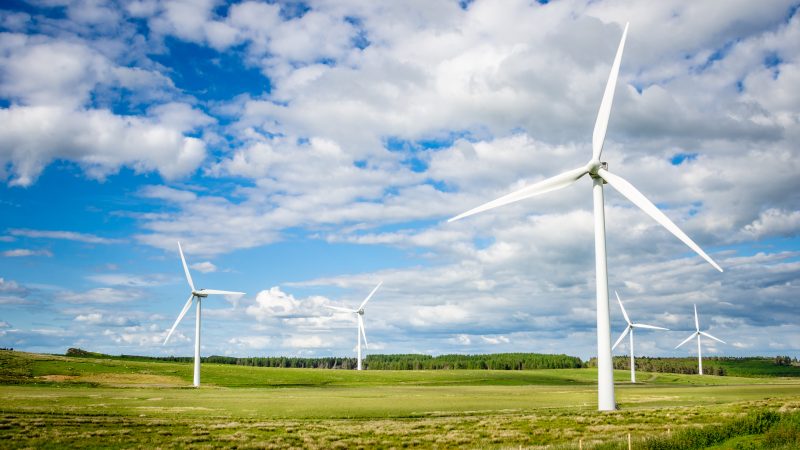
The Tony Blair Institute (TBI) has published a new report, Cheaper Power 2030, Net Zero 2050, calling on the government to “refocus” its Clean Power by 2030 mission away from delivering clean energy at speed or “short-term emissions cuts” towards delivering cheaper renewable power to accelerate household, transport and industry electrification.
But this is exactly what the government is already doing.
The TBI report presents a false choice between affordability and ambition. It treats clean power as a cost rather than the foundation of cheaper energy. The truth is that renewables are already the cheapest source of electricity. What keeps prices high is an outdated market structure that still ties the price of wind and solar to gas. Labour’s clean power mission is the first serious attempt to fix that.
READ MORE: Teal and green waves put safe seat on knife edge as ex-council chief quits
By contrast, suspending carbon pricing on gas would save little for households while damaging confidence in the UK’s carbon markets. Weakening environmental protections in planning would create controversy without speeding up delivery. What the system really needs is more grid investment and clearer coordination. And casting doubt on the 2030 target would risk signalling to investors that the UK is no longer serious about its clean energy leadership.
The report ends up arguing for the same objectives Labour has set out from the start – clean, affordable, secure energy – while creating needless confusion about priorities.
This is not the first time the TBI has sought to steer Labour away from its clean energy goals. Back in May, it argued that net zero risked becoming politically unpopular – a claim I challenged here on LabourList at the time. It was a damaging intervention then and it is an unhelpful one now.
Labour’s Clean Energy mission has always been about cutting bills as well as emissions. Through Great British Energy and the 2030 clean power target, we have put affordability, energy security and investment certainty at the heart of the transition. Throughout this government’s ongoing commitment to clean energy, the Prime Minister and Ed Miliband have consistently been clear that the only way to permanently lower bills is to end our dependence on volatile gas prices, effectively breaking the link between gas and electricity costs by scaling up home-grown renewables. Miliband has also reiterated that reducing energy costs for families is his responsibility and one of this government’s top priorities.
Subscribe here to our daily newsletter roundup of Labour news, analysis and comment– and follow us on Bluesky, WhatsApp, X and Facebook.
The wider political reading is misplaced too. The debate about clean power is often dominated by the loudest voices online – a small but noisy minority who oppose wind and solar developments and claim to speak for working communities. In truth, they do not represent the mainstream view, and they are not the voters Labour needs to win. Polling shows that even among the minority of Labour voters considering a switch to Reform UK, a majority still support climate action. What most angers these voters is not climate policy but “rip-off” behaviour from oil and gas companies and high household bills – exactly the issues a well designed, clean, affordable energy system can fix.
Far larger numbers of Labour’s 2024 voters are curious about the Greens or the Liberal Democrats, for whom environmental leadership is non-negotiable. A retreat from climate ambition would alienate far more voters than it would attract, and it would hand those parties a powerful moral and political argument that Labour currently has ownership of. .
The truth is that clean energy remains one of the most popular and positive parts of Labour’s agenda. People understand that British wind, solar and tidal power mean jobs, security and lower bills. They want to see the government deliver faster, not slower.
Share your thoughts. Contribute on this story or tell your own by writing to our Editor. The best letters every week will be published on the site. Find out how to get your letter published.
Britain’s clean power mission remains the right choice economically, environmentally and politically. Delivering it means faster progress on renewables, stronger grid investment, and a fairer market so that cheap power actually shows up in people’s bills. That is what will keep public support strong and ensure Britain leads the world not just in climate ambition, but in making it work for ordinary households.
Clean power is cheaper power. And the quickest way to make it affordable is for Labour to stay the course.
-
- SHARE: If you have anything to share that we should be looking into or publishing about this story – or any other topic involving Labour– contact us (strictly anonymously if you wish) at [email protected].
- SUBSCRIBE: Sign up to LabourList’s morning email here for the best briefing on everything Labour, every weekday morning.
- DONATE: If you value our work, please chip in a few pounds a week and become one of our supporters, helping sustain and expand our coverage.
- PARTNER: If you or your organisation might be interested in partnering with us on sponsored events or projects, email [email protected].
- ADVERTISE: If your organisation would like to advertise or run sponsored pieces on LabourList‘s daily newsletter or website, contact our exclusive ad partners Total Politics at [email protected].




More from LabourList
‘Labour council candidates – it’s tough, but all is not lost’
‘Labour won’t stop the far right by changing leaders — only by proving what the left can deliver’
‘Cutting Welsh university funding would be economic vandalism, not reform’